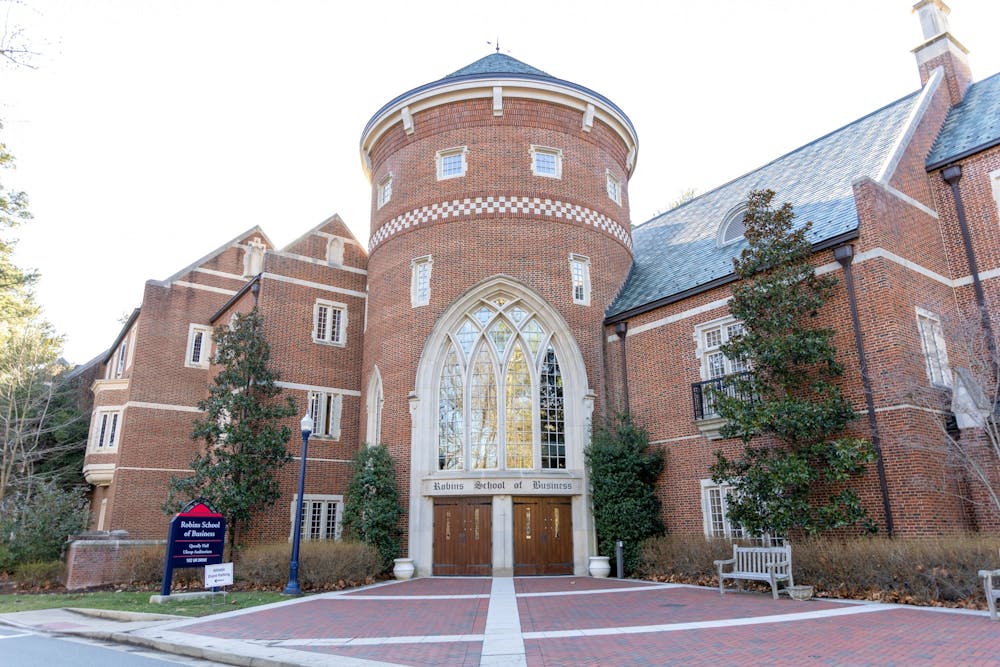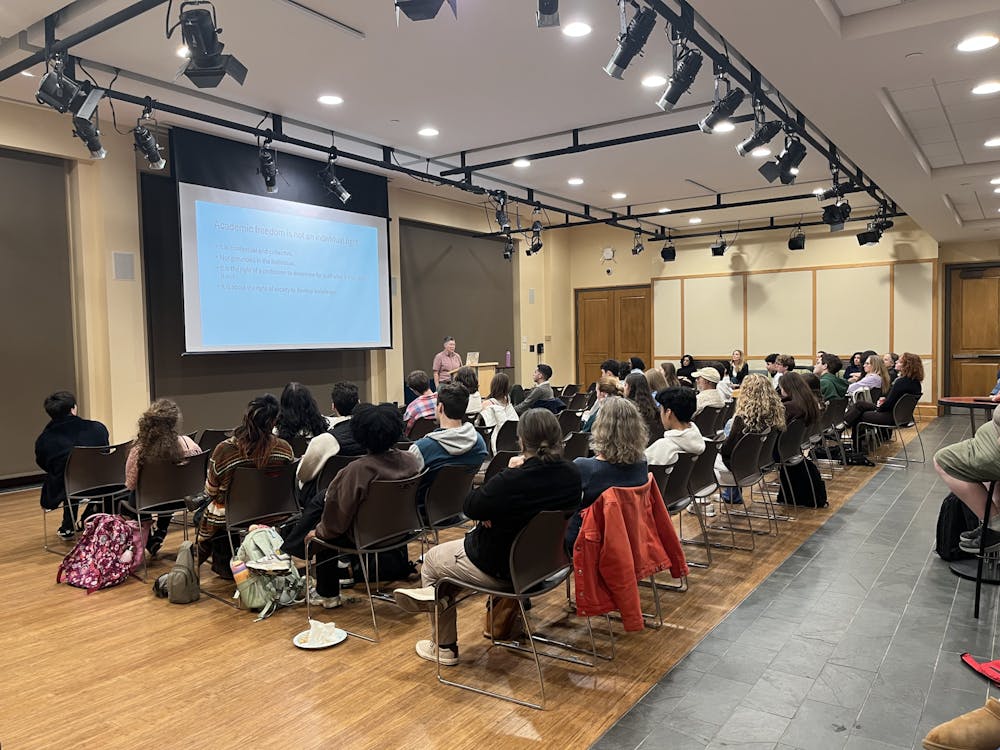The Student Center for Equity and Inclusion invited Nina Davuluri, the first Indian-American and South Asian to win Miss America in 2014, to lead a keynote discussion about beauty standards on April 13.
University of Richmond community members gathered in the Ukrop Auditorium of the E. Claiborne Robins School of Business on April 13 to celebrate UR’s inaugural Asian, Pacific Island, Desi and West Asian Heritage Month.
Davaluri’s discussion highlighted what it means to be an APIDWA community member in a world that prefers light skin and other beauty standards. She shared her ideas on colorism, beauty and social norms by recounting events from her life.
Growing up, she would spend her summers in India and remembered seeing skin whitening ads on television, she said. At 8 years old, Davuluri’s uncle took her to the dermatologist for eczema. The doctor gave her cream for treatment, but Davuluri wanted a cream to make her skin lighter instead.
The morning after winning Miss America, Davuluri was reminded of the harmful effects of colorism, she said.
“I open Twitter and I see this headline that says, ‘Is Miss America Too Dark to be Miss India?’” she said. “The very obvious answer is yes. I remember, as I’m thinking about this by myself, I really just had a moment where I thought, ‘Really? Am I still not enough? Is this not enough?’”
Despite winning Miss America, Davuluri has tried to remove herself from the title as much as possible because of the beauty stereotypes that come with it, she said.
“I used to say that Miss America empowered me in that it gave me a voice,” Davuluri said. “I do have to recognize that if that hadn’t happened, I probably wouldn’t be on this stage today, but what may have temporarily empowered me as an individual, the beauty standards associated with it doesn’t empower the collective.”
After winning the Miss America title, Davuluri disrupted global beauty standards in many ways, including her most recent project that combines her love for film and advocacy. She created “#COMPLEXion,” a documentary that addresses colorism, beauty standards and diversity that will be released by the end of this year, she said.
The years that followed the competition, Davuluri learned about herself and the beauty industry. She acknowledged that she had fed into beauty standards to feel confident and worthy, but she hadn’t gained any of the things she was promised, she said.
Her truth on beauty has helped her appreciate herself and hopes that her vulnerability would inspire others to share their truth, she said.
Davuluri’s inspiring message was addressed to several audience members, including sophomore Mamnuya Rinki.
Enjoy what you're reading?
Signup for our newsletter
Rinki, who is also the head cultural advisor at SCEI, remembered seeing Davuluri win Miss America when she was in middle school.
“I think she mentioned a lot about colorism and the struggles about her culture, and I think that really resonated with me,” Rinki said. “Especially looking up to her growing up, and seeing her now it’s from two different mindsets almost.”
First-year Lindsey Abellard didn’t know of Davuluri prior to the event, but she said she thought the discussion was interesting and necessary.
“I definitely feel like these are conversations that we need to have, especially at a campus like a [predominately white institution],” Abellard said.
Morgan Russell-Stokes, dean for Student Equity & Inclusion and director of SCEI, helped Assistant Director for APIDWA Daniel Dho Roberts organize the event, she said.
Russell-Stokes, who leads the Oliver Hill Scholars program, is looking forward to Oliver Hill students interacting with the larger campus community through events that stimulate conversation like Davuluri’s keynote discussion, she said.
“I’m excited to say that this has now become a catalyst for Oliver Hill to host a speaker series that will talk on really tough topics,” Russell-Stokes said. “This will be woven into the heritage months in the coming years.”
Davuluri’s keynote was the closing event for APIDWA Heritage Month, but it will not be the last of its kind at UR. As Davuluri closed her discussion on colorism and beauty standards, she shared a piece of advice with the audience.
“Be yourself,” Davuluri said. “You have to know who you are, love who you are and stand up for who you are.”
Contact contributor Ale Egocheaga at ale.egocheaga@richmond.edu.
Support independent student media
You can make a tax-deductible donation by clicking the button below, which takes you to our secure PayPal account. The page is set up to receive contributions in whatever amount you designate. We look forward to using the money we raise to further our mission of providing honest and accurate information to students, faculty, staff, alumni and others in the general public.
Donate Now



